Largeflower false rosemary
Largeflower false rosemary (Conradina grandiflora) is an endemic and state-threatened wildflower that occurs naturally in scrub habitats along the east coast of Central and South Florida.
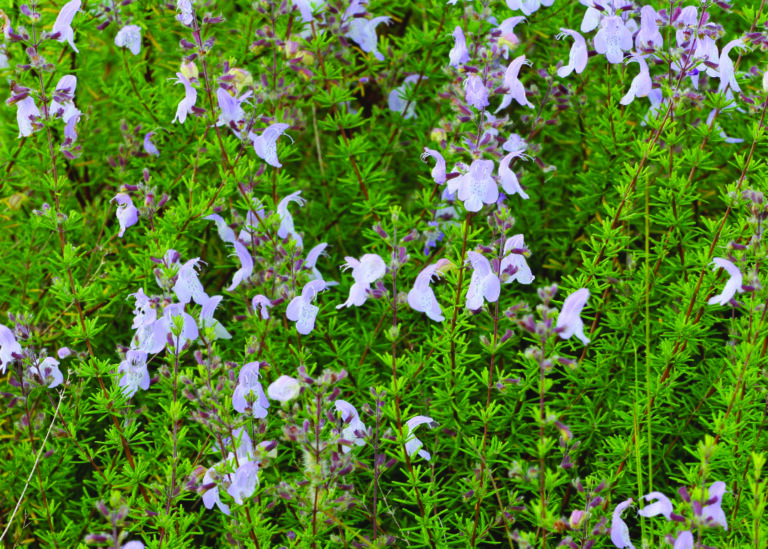
Largeflower false rosemary (Conradina grandiflora) is an endemic and state-threatened wildflower that occurs naturally in scrub habitats along the east coast of Central and South Florida.
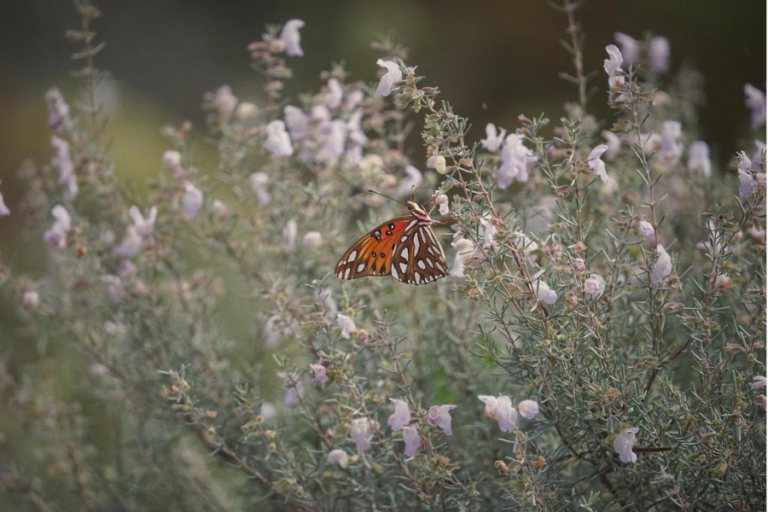
False rosemary (Conradina canescens) occurs naturally in sand pine scrub and sandhills. Many pollinator species are attracted to false rosemary, but bees are the most prominent visitor.
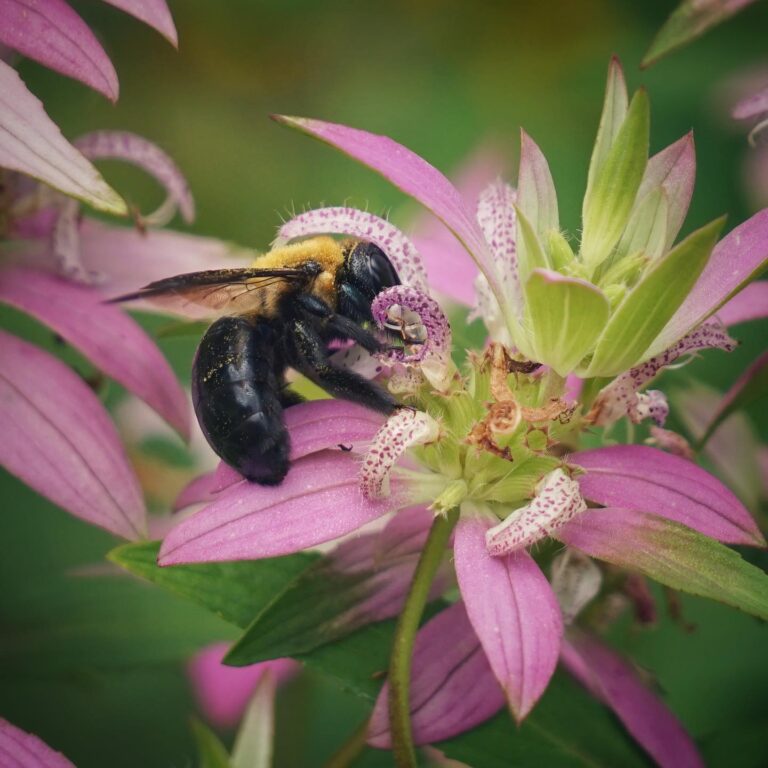
Lamiaceae is a family comprising over 7,100 species worldwide. It features many versatile wildflowers that make excellent additions to home and urban landscapes in Florida, including American beautyberry, Spotted beebalm, and Tropical sage.
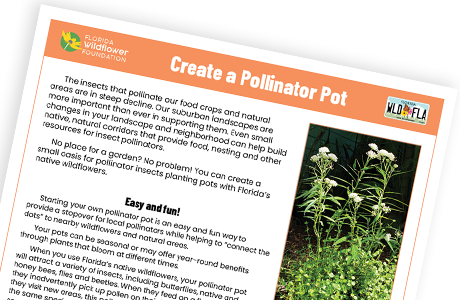
The insects that pollinate our food crops and natural areas are in steep decline. Our suburban landscapes are more important than ever in supporting them. No place for a garden? No problem! Our new video and handout can help you create a small pollinator oasis in a pot! Versión en español disponible.
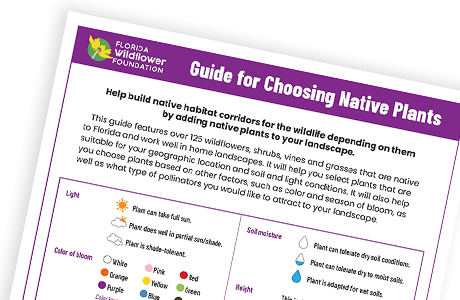
This guide includes over 120 Florida native wildflowers, shrubs, vines and grasses that work well in home landscapes. It will help you choose plants based on your location, soil and light conditions, color and season of bloom, and pollinator use. Versión en español disponible.
Welcome to our Green Mountain Scenic Byway demonstration garden made possible through the Florida Wildflower Foundation Viva Florida grant.
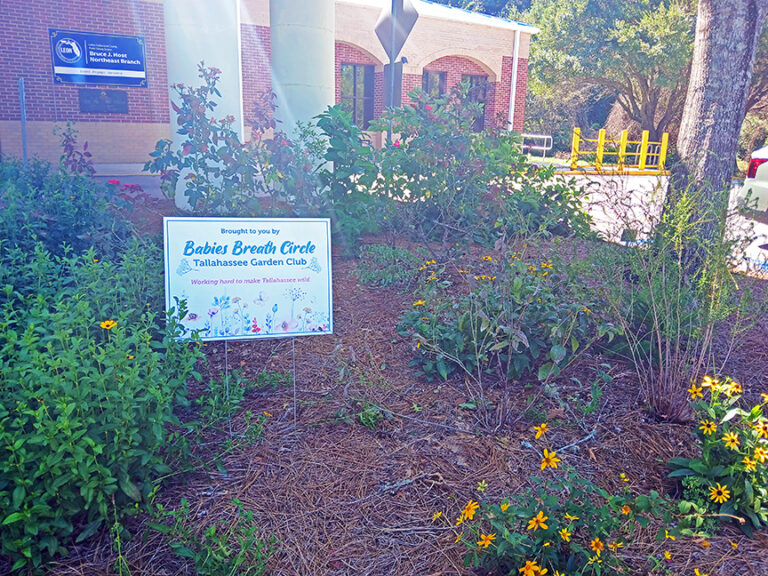
Bruce J. Host Northeast Branch Library in Tallahassee was selected to pilot the Seeds of Knowledge Library Demonstration Garden Grant in spring 2024.
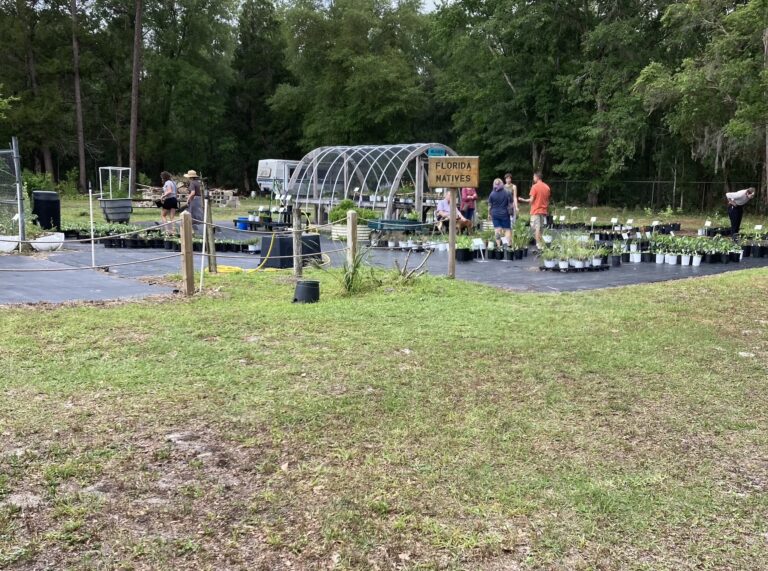
A native plant demonstration garden at Grow Hub: 2900 NE 8th Ave, Gainesville, FL 32609
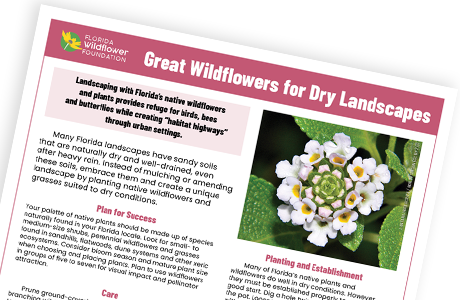
Wondering what native wildflowers and plants to use in a dry landscape? Use our new handout to evaluate your landscape’s soil moisture and choose diverse species that will thrive and give your landscape a “real Florida” feel. Versión en español disponible.
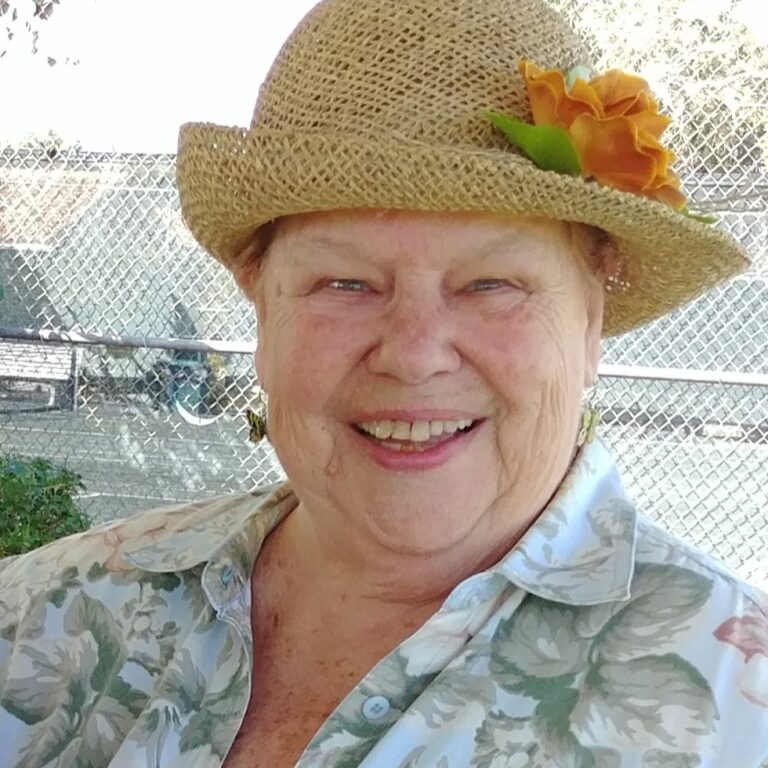
Mona Johnston joined the Florida Wildflower Foundation board in September 2023, bringing with her an extensive knowledge and legacy of conserving South Florida’s native wildflowers.
The Longwood native plant garden utilizes Florida native wildflowers, grasses and shrubs that provide vital habitat for bees, butterflies and other beneficial insects, as well as seeds, berries and insects for birds.
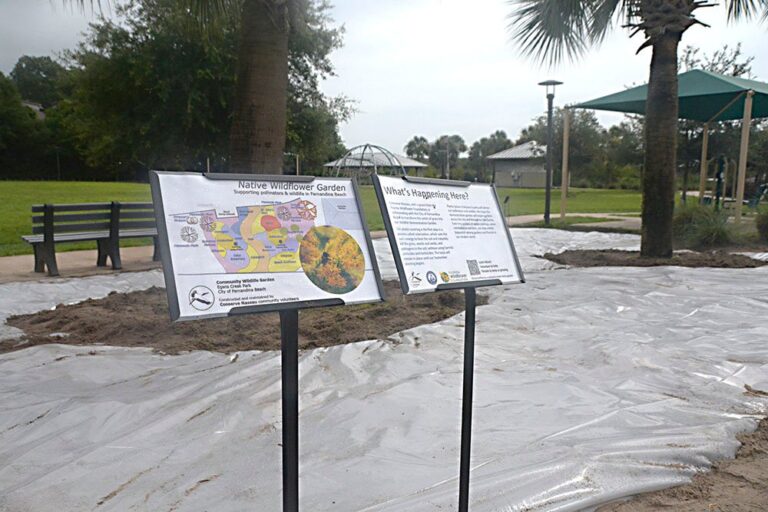
The Florida Wildflower Foundation is pleased to announce the recipients of the 2023 Viva Florida Landscape Demonstration Garden grants. Nine grants were awarded for projects from Palm Beach County in South Florida to Santa Rosa County in the Panhandle.